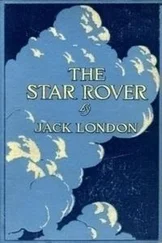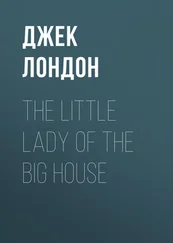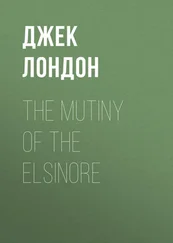Not until I had gone through the acts of a contortionist, and shown the round coin sewed in, did I succeed in getting the Carter's help. Even then his hand was trembling so that I was afraid he would cut me instead of the stitches, and I was forced to take the knife away and do it myself. Out rolled the gold piece, a fortune in their hungry eyes; and away we stampeded for the nearest coffee–house.
Of course I had to explain to them that I was merely an investigator, a social student, seeking to find out how the other half lived. And at once they shut up like clams. I was not of their kind; my speech had changed, the tones of my voice were different, in short, I was a superior, and they were superbly class conscious.
"What will you have?" I asked, as the waiter came for the order.
"Two slices an' a cup of tea," meekly said the Carter.
"Two slices an' a cup of tea," meekly said the Carpenter.
Stop a moment, and consider the situation. Here were two men, invited by me into the coffee–house. They had seen my gold piece, and they could understand that I was no pauper. One had eaten a ha'penny roll that day, the other had eaten nothing. And they called for "two slices an' a cup of tea!" Each man had given a tu'penny order. "Two slices," by the way, means two slices of bread and butter.
This was the same degraded humility that had characterised their attitude toward the poorhouse porter. But I wouldn't have it. Step by step I increased their order—eggs, rashers of bacon, more eggs, more bacon, more tea, more slices and so forth—they denying wistfully all the while that they cared for anything more, and devouring it ravenously as fast as it arrived.
"First cup o' tea I've 'ad in a fortnight," said the Carter.
"Wonderful tea, that," said the Carpenter.
They each drank two pints of it, and I assure you that it was slops. It resembled tea less than lager beer resembles champagne. Nay, it was "water–bewitched," and did not resemble tea at all.
It was curious, after the first shock, to notice the effect the food had on them. At first they were melancholy, and talked of the divers times they had contemplated suicide. The Carter, not a week before, had stood on the bridge and looked at the water, and pondered the question. Water, the Carpenter insisted with heat, was a bad route. He, for one, he knew, would struggle. A bullet was "'andier," but how under the sun was he to get hold of a revolver? That was the rub.
They grew more cheerful as the hot "tea" soaked in, and talked more about themselves. The Carter had buried his wife and children, with the exception of one son, who grew to manhood and helped him in his little business. Then the thing happened. The son, a man of thirty–one, died of the smallpox. No sooner was this over than the father came down with fever and went to the hospital for three months. Then he was done for. He came out weak, debilitated, no strong young son to stand by him, his little business gone glimmering, and not a farthing. The thing had happened, and the game was up. No chance for an old man to start again. Friends all poor and unable to help. He had tried for work when they were putting up the stands for the first Coronation parade. "An' I got fair sick of the answer: 'No! no! no!' It rang in my ears at night when I tried to sleep, always the same, 'No! no! no!'" Only the past week he had answered an advertisement in Hackney, and on giving his age was told, "Oh, too old, too old by far."
The Carpenter had been born in the army, where his father had served twenty–two years. Likewise, his two brothers had gone into the army; one, troop sergeant–major of the Seventh Hussars, dying in India after the Mutiny; the other, after nine years under Roberts in the East, had been lost in Egypt. The Carpenter had not gone into the army, so here he was, still on the planet.
"But 'ere, give me your 'and," he said, ripping open his ragged shirt. "I'm fit for the anatomist, that's all. I'm wastin' away, sir, actually wastin' away for want of food. Feel my ribs an' you'll see."
I put my hand under his shirt and felt. The skin was stretched like parchment over the bones, and the sensation produced was for all the world like running one's hand over a washboard.
"Seven years o' bliss I 'ad," he said. "A good missus and three bonnie lassies. But they all died. Scarlet fever took the girls inside a fortnight."
"After this, sir," said the Carter, indicating the spread, and desiring to turn the conversation into more cheerful channels; "after this, I wouldn't be able to eat a workhouse breakfast in the morning."
"Nor I," agreed the Carpenter, and they fell to discussing belly delights and the fine dishes their respective wives had cooked in the old days.
"I've gone three days and never broke my fast," said the Carter.
"And I, five," his companion added, turning gloomy with the memory of it. "Five days once, with nothing on my stomach but a bit of orange peel, an' outraged nature wouldn't stand it, sir, an' I near died. Sometimes, walkin' the streets at night, I've ben that desperate I've made up my mind to win the horse or lose the saddle. You know what I mean, sir—to commit some big robbery. But when mornin' come, there was I, too weak from 'unger an' cold to 'arm a mouse."
As their poor vitals warmed to the food, they began to expand and wax boastful, and to talk politics. I can only say that they talked politics as well as the average middle–class man, and a great deal better than some of the middle–class men I have heard. What surprised me was the hold they had on the world, its geography and peoples, and on recent and contemporaneous history. As I say, they were not fools, these two men. They were merely old, and their children had undutifully failed to grow up and give them a place by the fire.
One last incident, as I bade them good–bye on the corner, happy with a couple of shillings in their pockets and the certain prospect of a bed for the night. Lighting a cigarette, I was about to throw away the burning match when the Carter reached for it. I proffered him the box, but he said, "Never mind, won't waste it, sir." And while he lighted the cigarette I had given him, the Carpenter hurried with the filling of his pipe in order to have a go at the same match.
"It's wrong to waste," said he.
"Yes," I said, but I was thinking of the wash–board ribs over which I had run my hand.
First of all, I must beg forgiveness of my body for the vileness through which I have dragged it, and forgiveness of my stomach for the vileness which I have thrust into it. I have been to the spike, and slept in the spike, and eaten in the spike; also, I have run away from the spike.
After my two unsuccessful attempts to penetrate the Whitechapel casual ward, I started early, and joined the desolate line before three o'clock in the afternoon. They did not "let in" till six, but at that early hour I was number twenty, while the news had gone forth that only twenty–two were to be admitted. By four o'clock there were thirty–four in line, the last ten hanging on in the slender hope of getting in by some kind of a miracle. Many more came, looked at the line, and went away, wise to the bitter fact that the spike would be "full up."
Conversation was slack at first, standing there, till the man on one side of me and the man on the other side of me discovered that they had been in the smallpox hospital at the same time, though a full house of sixteen hundred patients had prevented their becoming acquainted. But they made up for it, discussing and comparing the more loathsome features of their disease in the most cold–blooded, matter–of–fact way. I learned that the average mortality was one in six, that one of them had been in three months and the other three months and a half, and that they had been "rotten wi' it." Whereat my flesh began to creep and crawl, and I asked them how long they had been out. One had been out two weeks, and the other three weeks. Their faces were badly pitted (though each assured the other that this was not so), and further, they showed me in their hands and under the nails the smallpox "seeds" still working out. Nay, one of them worked a seed out for my edification, and pop it went, right out of his flesh into the air. I tried to shrink up smaller inside my clothes, and I registered a fervent though silent hope that it had not popped on me.
Читать дальше












